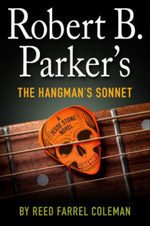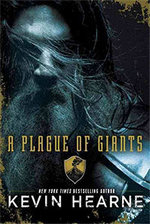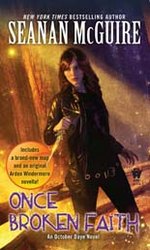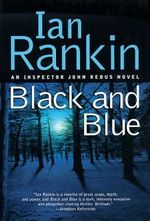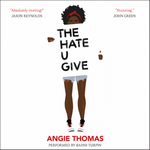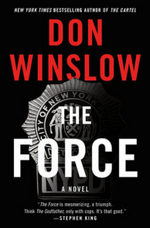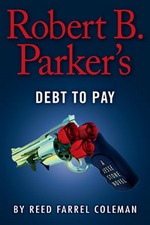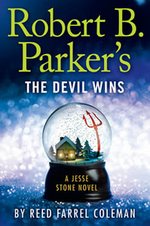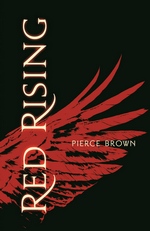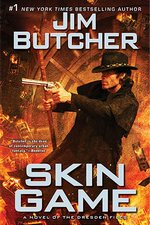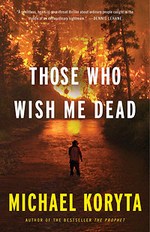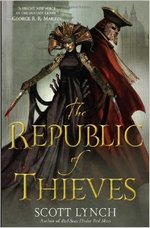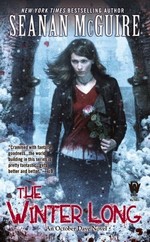 |
Robert B. Parker’s The Bitterest Pillby Reed Farrel Coleman eARC, 368 pg. Read: July 31 – August 3, 2019 |

Well, it’s pretty clear that Don Winslow has left his mark on Reed Farrel Coleman—there’s a quotation from Winslow on the so-called War on Drugs as the epigraph to this novel. Jesse cites it and alludes to it later in the novel. It’s a good line—catchy and insightful (and, not that it matters, I agree 100% with it)—don’t misunderstand me, but I’m used to Robert B. Parker characters citing Shakespeare, (Edmund) Spenser, Shelley, and songs from the late 60s/70s. I don’t think I’ve ever seen one quote someone contemporary. The latest focus of most of our country in that War is the Opioid Crisis, in The Bitterest Pill, that epidemic shows up in Paradise, Massachusettes—partially fulfilling Vinnie Morris’ prediction to Jesse that Boston crime was on its way to Paradise.
A student at Paradise High—the daughter of a city councilman—dies of an overdose and the city is rocked. It can’t be the first drug-related death in its history, but this was a different kind of thing. She’s not an obvious user, cheerleader, from a well-to-do family, and so on. Not the kind of person that Paradise is ready to believe would be an addict or that would die of an O.D.
What’s obvious to Jesse and his team is that if they don’t shut down the supply chain that fed this girl her drugs, she won’t be the only death, she’ll just be the first. This sets Jesse on a Hunt through Paradise High School and Boston’s underbelly. There’s a moment that made me think of Connelly’s Two Kinds of Truth (which just means that Connelly and Coleman have both done their research into the ways prescription drug rings work, not that Coleman’s copying anything)—but there’s a difference. Bosch is trying to deal with a situation, he’s involved in busting a ring as a means to an end. Jesse? He’s trying to protect his town it’s personal—and the ways that this particular ring is trying to invade Paradise are more diverse than what Bosch dealt with.
Skip this next paragraph if you’re worried about Colorblind spoilers.
I avoided talking about the new character Cole last time out, because, how could I? I’m on the fence with him, honestly. I don’t see where he was necessary—Jesse has Suit to father (although, at this stage, Luther doesn’t need much), he’s got the weight of the city on his shoulders, what’s added to the character by this relation? On the other hand, scenes with him are done so well, and Jesse’s different with him. I really enjoy him—he’s not the Paradise equivalent of Paul Giacomin, thankfully (nothing against Paul, we just don’t need another one), he’s a different kind of character (as Jesse was compared to Spenser and Sunny).
Speaking of Suitcase, I think I’ve loved everything Coleman’s done with him (every major thing, anyway, there might have been a scene or two that I forgot about), other than not using him as often as he could. But there’s a scene with Suit and Cole in this book that is so well done that it’s one of those passages I could read from time to time just to smile at. He’s come a long way. Molly seemed a little under-used, but she was good whenever she showed up and did get to shine a bit. I think Coleman overplayed the difficulty of Molly doing her job because of the way this case impacted Paradise’s children a bit (really not much), and, as always, he’s too dependent on bringing up the incident with Crow in relation to Molly. But on the whole, Suit, Molly and the rest of Paradise PD came off pretty well.
For awhile under Coleman and Ace Atkins, Vinnie Morris seemed more dangerous, more of a wild card—less “tamed.” But both the way that Atkins has used him the last time or two and here he seems to be tacking back to a friendly criminal who’s too willing to help out the non-criminal element. Frankly, I prefer the less-tame version, but as someone who’s enjoyed Vinnie since he worked for Joe Broz ages ago, I don’t care, I just like seeing him on the page.
After the very effective use of the mayor recently, I was surprised at her absence in this novel—not that there was room for anything like that.
There’s really one more supporting character that we should talk about—Alcohol. Jesse’s greatest foe (although, you could argue he’s the enemy and alcohol is the tool he uses to attack himself, but…eh, let’s make this easy and say alcohol). He may be clean and sober, but he’s still an addict, and his drug of choice is still a near-constant presence in his life. I love, respect and admire the way that Jesse (and Coleman) have dealt with this subject, particularly since Jesse stopped drinking. It’s so much more believable (and healthy) than Jesse’s attempts to manage his drinking before. I liked the approach in Colorblind, and continuing it in The Bitterest Pill made it stronger.
So, we’ve got Jesse battling personal demons (but with a clearer head), adjusting to a new personal reality, and dealing with a potentially crushing crime wave that’s leaving a trail of destruction through the youth of Paradise. Throw in the instability of a new romantic relationship? Jesse’s in a pretty healthy place, but given the pressures (and a couple I didn’t list)—it’s gotta be weighing on him, and Coleman does a pretty good job of balancing the health and precarious nature of Jesse’s state of mind.
As Coleman’s writing, it seemed frequently that he was trying too hard to make this something the level of Colorblind or Debt to Pay, and didn’t quite make it. Maybe because he was trying so hard? The topic he’s dealing with is important, so it’s understandable he’s taking big swings to hit this out of the park. But there are a few sentences that no one but Reed Farrel Coleman could have written. They were gorgeous and practically sang. I don’t want to sound like one of those anti-genre literary snobs, but Coleman comes close to transcending the genre and its easy to see the impact his poetry frequently has on his prose.
At the same time, he’s an effective mystery writer—there are red herrings all over the place for readers to get distracted with. As far as the main conduit for drugs into the school goes, I had a candidate I was sure of and a back-up, and another one, too. I couldn’t have been more wrong and had dismissed the actual perpetrator without much thought at all. While ratcheting up the tension, keeping me locked into the story, he pulls the wool over my eyes and manages a few lines that are practically lyrical. There are few in the genre who can match that.
The ending of this novel came as a little bit of a gut punch. Granted, there was a sense in which the last couple of pages couldn’t have gone any other way—I’ll leave the specifics out of it, but the last few paragraphs were hard to read. But they were so, so good. They might be the most effective few paragraphs in the book. I don’t think it’s much of a spoiler to say that just when you think the story’s done, it’s not.
Rumor has it that this is Coleman’s last Jesse Stone book—I hope it’s not true, but it’d make sense as he’s switching publishers. As I said when his first entry in this series came out, his was the best Jesse Stone since Parker’s early days with the series. Yes, he didn’t do things the way Parker would have (especially later), but what he did was honest and genuine to the spirit of the characters and series that Parker left. Stone has a complexity that Spenser lost in the mid-80s, and Coleman recaptured that. The Bitterest Pill might not have been Coleman’s Stone at his best, but I think that’s largely because he was trying too hard to say something about the societal impact of the drugs (whereas in Colorblind it seemed effortless). And, while it wasn’t as good as it wanted to be, it was very, very good, and will go down as one of the higher points of the series.
The Bitterest Pill would be a good place to meet Jesse Stone and the rest of the Paradise Police Department, and it’s a great way for long-time fans/readers to touch base with them. I strongly recommend this.
Disclaimer: I received this eARC from Putnam Books via NetGalley in exchange for this post—I thank both groups for this.










